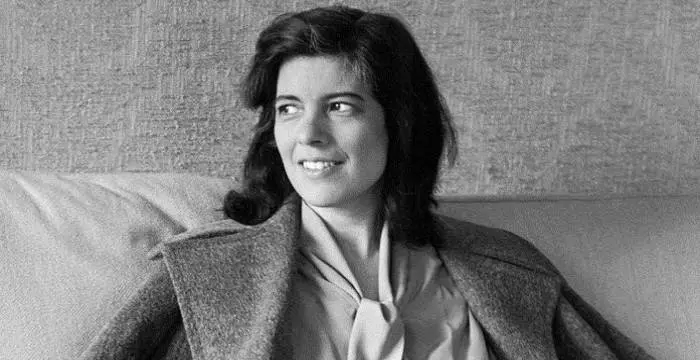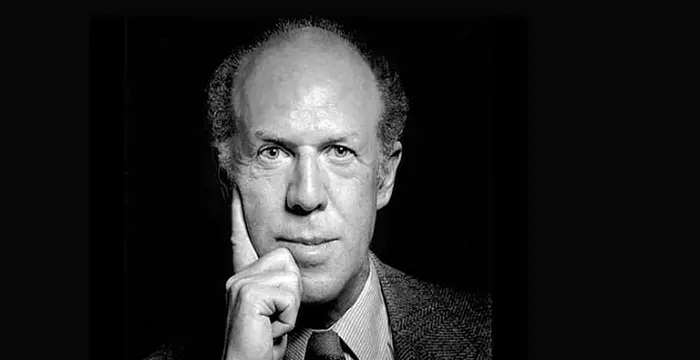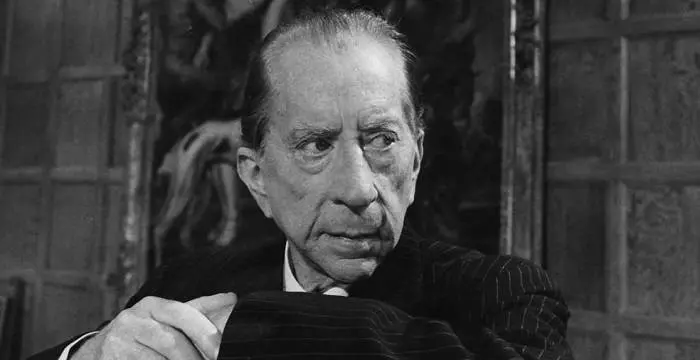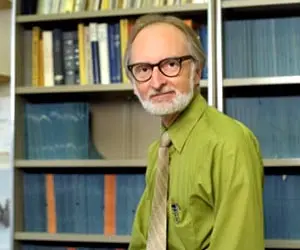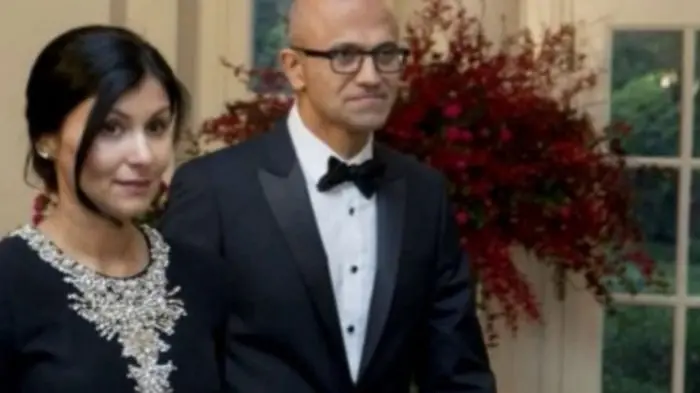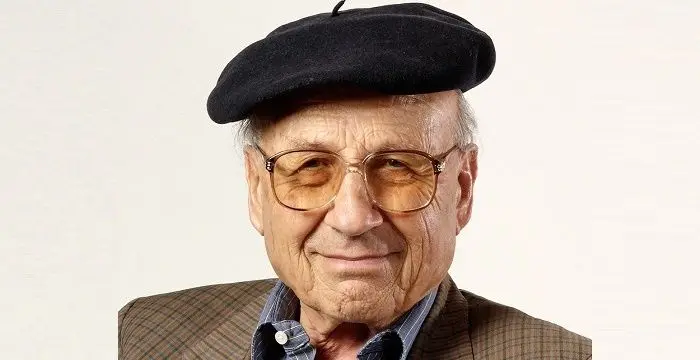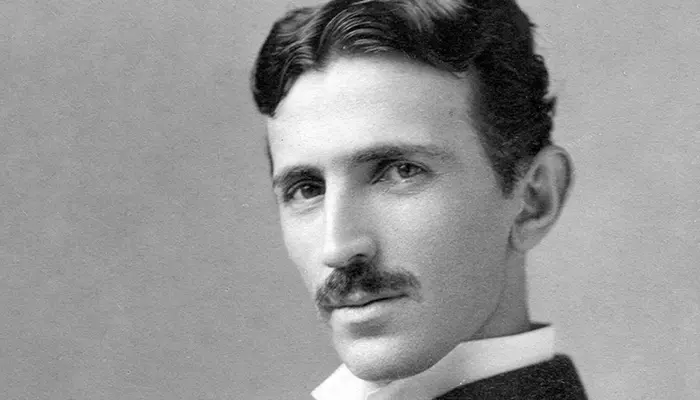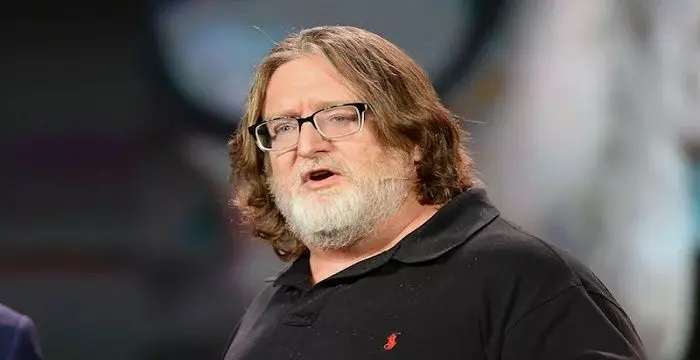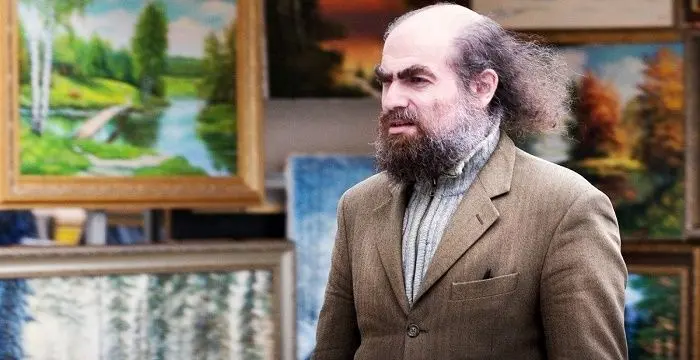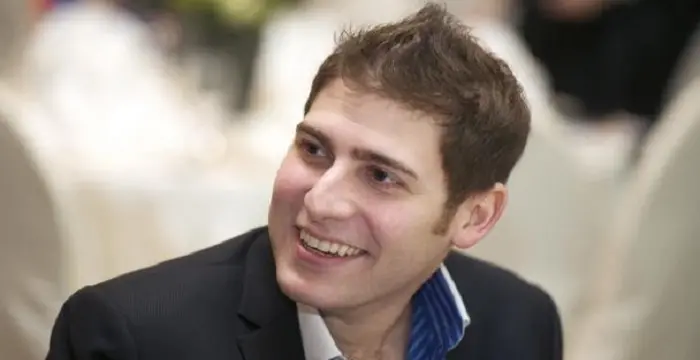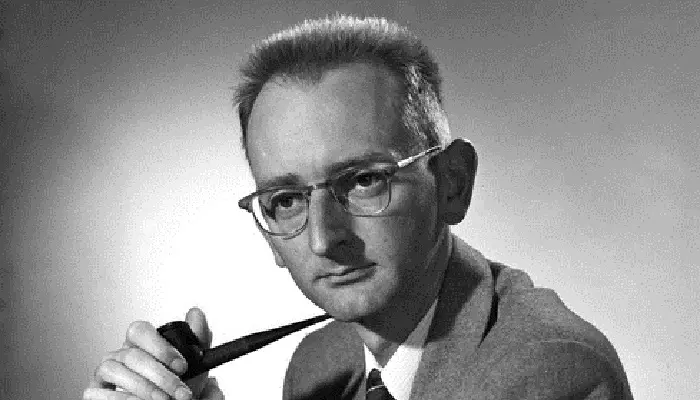
Owen Chamberlain - Scientists, Timeline and Facts
Owen Chamberlain's Personal Details
Owen Chamberlain was a renowned American physicist
| Information | Detail |
|---|---|
| Birthday | July 10, 1920 |
| Died on | February 28, 2006 |
| Nationality | American |
| Famous | University Of California, Berkeley, University Of Chicago, Scientists, Physicists |
| Universities |
|
| Notable Alumnis |
|
| Birth Place | San Francisco, California, USA |
| Gender | Male |
| Father | W. Edward Chamberlain |
| Mother | Genevieve Lucinda Chamberlain |
| Sun Sign | Cancer |
| Born in | San Francisco, California, USA |
| Famous as | Physicist |
| Died at Age | 85 |
// Famous University Of California, Berkeley
Susan Sontag
Susan Sontag is an American critical essayist, cultural analyst, novelist, political activist, filmmaker and playwright of international repute. Read on to find out more about her childhood, career, profile and timeline.
Gerard Debreu
Gerard Debreu was a French-born American economist who brought mathematical precision to economics. Check out this biography to know about his childhood, family life, achievements and other facts related to his life.
J. Paul Getty
J. Paul Getty was an American billionaire businessman and president of the Getty Oil Company. This biography offers detailed information about his childhood, life, career and timeline.
Owen Chamberlain's photo
Who is Owen Chamberlain?
Nobel Laureate American physicist Owen Chamberlain discovered the existence of antiprotons. The founding of antiprotons has great significance in the study of matter and anti-matter. According to his theory, negatively charged antiproton is the mirror image of positively charged proton. Along with his colleagues, he also discovered the process of isolating antiprotons. Later, he continued his research to document the collision and destruction of protons and antiprotons through a photographic process. When the US participated in the World War II, he worked as a part of Manhattan Project, the secret program of the US to build an atom bomb. This project brought him the opportunity to work with Emilio Segre , an Italian physicist. At that time, he worked on nuclear cross sections for intermediate-energy neutrons and spontaneous fission of heavy elements. He also did research work on alpha particle decay, neutron diffraction in liquids and high-energy nuclear particle reactions. Together with two other renowned Professors, he developed and applied polarized proton targets as part of his research work. This remarkable experiment assisted in the study of several high energy processes like the scattering of pi-mesons and protons on polarized protons, the determination of the parity of hyperons and a test of time reversal symmetry in electron-proton scattering.
// Famous University Of Chicago
Satya Nadella
Satya Nadella is the current CEO of Microsoft. This biography provides detailed information about his childhood, profile, career, net worth & timeline
Emily Greene Balch
Emily Greene Balch was an American economist, sociologist and pacifist who won the 1946 Nobel Peace Prize. This biography of Emily Greene Balch provides detailed information about her childhood, life, achievements, works & timeline.
Susan Sontag
Susan Sontag is an American critical essayist, cultural analyst, novelist, political activist, filmmaker and playwright of international repute. Read on to find out more about her childhood, career, profile and timeline.
Childhood & Early Life
Owen Chamberlain was born on July 10, 1920, in San Francisco, California, to W. Edward Chamberlain and Genevieve Lucinda Chamberlain. His father was a radiologist at Stanford University Hospital.
After shifting with his family to Philadelphia, Pennsylvania, he studied at Germantown Friends School. He received his bachelor degree in science from Dartmouth College, New Hampshire in 1941.
Later, he attended the University of California at Berkley. During this time, he came in contact with famous physicist Emilio Segre. When the US joined the World War II in 1942, his studies were interrupted.
In the same year, he became a part of the Manhattan Project, the secret program of the United States to build an atom bomb. At that time, he started working with Segre as part of this project.
His works in this project included to pursue research on uranium isotopes, nuclear cross sections for intermediate energy neutrons and spontaneous fission of heavy elements.
In 1943, he went to Los Alamos to witness the testing of the first atom bomb. At the end of the war in 1946, he continued his doctoral studies under the guidance of physicist Enrico Fermi at the University of Chicago.
As part of his doctoral thesis, he worked on the diffraction of slow neutrons in liquids in 1948. In the same year, he received the offer for a teaching position at the University of California in Berkley. He got his Ph. D. officially from this university in 1949.
Career
In 1955, he took part in a research project to discover antiproton with Dr. Wiegand, Professor Segre and Dr. Ypsilantis. For this purpose, they utilized bevatron as a powerful particle accelerator.
As part of the project, he studied the interactions of anti-protons with hydrogen, deuterium and other elements. His research work also included the production of antineutrons with the help of antiprotons.
In 1957, he received Guggenheim Fellowship for his research on the physics of antinucleons at the University of Rome. In the next year, he took responsibility of the Professor of Physics at the University of California, Berkeley. In 1959, he acted as Loeb Lecturer at Harvard University.
In association with Professors Carson Jeffries and Gilbert Shapiro, he successfully developed polarized proton targets in 1960. This discovery helped in the study of the spin dependence of a number of high energy processes.
In the later part of 1970s, he took part in the study of the interactions of energetic light nuclei with nuclear targets at the Berkeley Bevalac accelerator for a short period.
In later period of his life, along with Dr. David Nygren , he pursued research on the development and construction of the Time-Projection-Chamber. This experiment proved to be advantageous to study high energy positron-electron interactions.
Besides pursuing research, he played a crucial role in issues like peace and social justice. He expressed his strong disapproval regarding the Vietnam War. He also criticised the repression of scientists in the former Soviet Union. He was one of the founders of the nuclear freeze movement during the 1980s.
Awards & Achievements
In 1959, he received the prestigious Nobel Prize in Physics for his discovery of antiprotons. These antiprotons are the antiparticles of the protons and are also known as negatrons. He shared this award with Emilio Segre.
Personal Life & Legacy
In 1943, he tied nuptial knot with Beatrice Babette Copper. They were the parents of three daughters and a son whose names were Karen Chamberlain, Lynne Guenther, Pia Chamberlain and Darol. They got divorced in 1978.
In 1980, he got married to June Steingart Greenfield . His third wife was Senta Pugh Gaiser. He had two step-daughters namely Mary Pugh and Anne Pugh. In 1985, he was under medical treatment as he was suffering from Parkinson’s disease.
He retired from teaching in 1989. He was one of 21 Nobel Laureates who signed the Humanist Manifesto in 2003.
He died on February 28, 2006, in Berkeley, California, due to complications from Parkinson's disease.
Trivia
According to one of his interviews, this Nobel Laureate physicist was the only student who could not write his own name while studying the first grade. The more interesting fact about him is that, he did not like subjects of science at that time.
// Famous Physicists
Henry Cavendish
Henry Cavendish was a theoretical chemist and physicist, renowned for discovery of hydrogen and calculation of the mass of earth. To know more about his childhood, profile, timeline and career read on
Walter Kohn
Nobel Laureate Walter Kohn was an Austrian-born American theoretical chemist and physicist. Check out this biography to know about his childhood, life, achievements, works & timeline.
Nikola Tesla
Nikola Tesla was a Serbian-American inventor, best known for his development of alternating current electrical systems. This biography of Nikola Tesla provides detailed information about his childhood, life, achievements, works & timeline.
Owen Chamberlain's awards
| Year | Name | Award |
|---|---|---|
Other | ||
| 0 | Nobel Prize in Physics (1959) | |
Owen Chamberlain biography timelines
- // 10th Jul 1920Owen Chamberlain was born on July 10, 1920, in San Francisco, California, to W. Edward Chamberlain and Genevieve Lucinda Chamberlain. His father was a radiologist at Stanford University Hospital.
- // 1941After shifting with his family to Philadelphia, Pennsylvania, he studied at Germantown Friends School. He received his bachelor degree in science from Dartmouth College, New Hampshire in 1941.
- // 1942Later, he attended the University of California at Berkley. During this time, he came in contact with famous physicist Emilio Segre. When the US joined the World War II in 1942, his studies were interrupted.
- // 1942In the same year, he became a part of the Manhattan Project, the secret program of the United States to build an atom bomb. At that time, he started working with Segre as part of this project.
- // 1943In 1943, he went to Los Alamos to witness the testing of the first atom bomb. At the end of the war in 1946, he continued his doctoral studies under the guidance of physicist Enrico Fermi at the University of Chicago.
- // 1943 To 1978In 1943, he tied nuptial knot with Beatrice Babette Copper. They were the parents of three daughters and a son whose names were Karen Chamberlain, Lynne Guenther, Pia Chamberlain and Darol. They got divorced in 1978.
- // 1949As part of his doctoral thesis, he worked on the diffraction of slow neutrons in liquids in 1948. In the same year, he received the offer for a teaching position at the University of California in Berkley. He got his Ph. D. officially from this university in 1949.
- // 1955In 1955, he took part in a research project to discover antiproton with Dr. Wiegand, Professor Segre and Dr. Ypsilantis. For this purpose, they utilized bevatron as a powerful particle accelerator.
- // 1957 To 1959In 1957, he received Guggenheim Fellowship for his research on the physics of antinucleons at the University of Rome. In the next year, he took responsibility of the Professor of Physics at the University of California, Berkeley. In 1959, he acted as Loeb Lecturer at Harvard University.
- // 1959In 1959, he received the prestigious Nobel Prize in Physics for his discovery of antiprotons. These antiprotons are the antiparticles of the protons and are also known as negatrons. He shared this award with Emilio Segre.
- // 1960In association with Professors Carson Jeffries and Gilbert Shapiro, he successfully developed polarized proton targets in 1960. This discovery helped in the study of the spin dependence of a number of high energy processes.
- // 1980In 1980, he got married to June Steingart Greenfield . His third wife was Senta Pugh Gaiser. He had two step-daughters namely Mary Pugh and Anne Pugh. In 1985, he was under medical treatment as he was suffering from Parkinson’s disease.
- // 1989He retired from teaching in 1989. He was one of 21 Nobel Laureates who signed the Humanist Manifesto in 2003.
- // 28th Feb 2006He died on February 28, 2006, in Berkeley, California, due to complications from Parkinson's disease.
// Famous Scientists
Juliane Koepcke
Juliane Koepcke is a German-Peruvian biologist, who was the lone survivor among the 92 passengers and crew of the ill-fated LANSA Flight 508 that crashed in the Peruvian rainforest on 24 December 1971. Know more about her life in this biography.
Henry Cavendish
Henry Cavendish was a theoretical chemist and physicist, renowned for discovery of hydrogen and calculation of the mass of earth. To know more about his childhood, profile, timeline and career read on
Konstantin Tsiolkovsky
Konstantin Tsiolkovsky was a Russian rocket scientist and a pioneer of astronautics. This biography provides detailed information about his childhood, family, personal life, career, achievements, etc.
Gabe Newell
Gabe Newell is an American computer programmer and businessman, best known as the co-founder of ‘Valve Corporation.’ This biography provides detailed information about his childhood, family, personal life, career, etc.
Grigori Perelman
Grigori Perelman is a Russian mathematician who is best known for his contributions to Riemannian geometry and geometric topology. Check out this biography to know about his childhood, family life, achievements and fun facts about him.
Eduardo Saverin
Eduardo Luiz Saverin is a Brazilian internet entrepreneur and investor. This biography profiles his childhood, life, career, achievements, and timeline
Owen Chamberlain's FAQ
What is Owen Chamberlain birthday?
Owen Chamberlain was born at 1920-07-10
When was Owen Chamberlain died?
Owen Chamberlain was died at 2006-02-28
Where was Owen Chamberlain died?
Owen Chamberlain was died in Berkeley, California, USA
Which age was Owen Chamberlain died?
Owen Chamberlain was died at age 85
Where is Owen Chamberlain's birth place?
Owen Chamberlain was born in San Francisco, California, USA
What is Owen Chamberlain nationalities?
Owen Chamberlain's nationalities is American
What was Owen Chamberlain universities?
Owen Chamberlain studied at University Of California, Berkeley,University Of Chicago
What was Owen Chamberlain notable alumnis?
Owen Chamberlain's notable alumnis is University Of California, Berkeley, University Of Chicago
Who is Owen Chamberlain's father?
Owen Chamberlain's father is W. Edward Chamberlain
Who is Owen Chamberlain's mother?
Owen Chamberlain's mother is Genevieve Lucinda Chamberlain
What is Owen Chamberlain's sun sign?
Owen Chamberlain is Cancer
How famous is Owen Chamberlain?
Owen Chamberlain is famouse as Physicist
